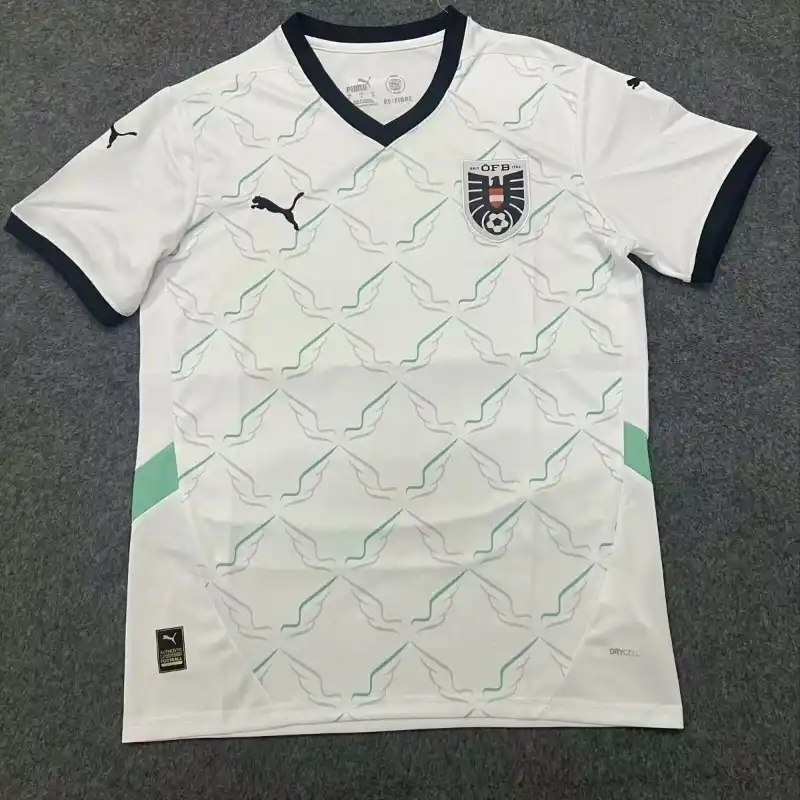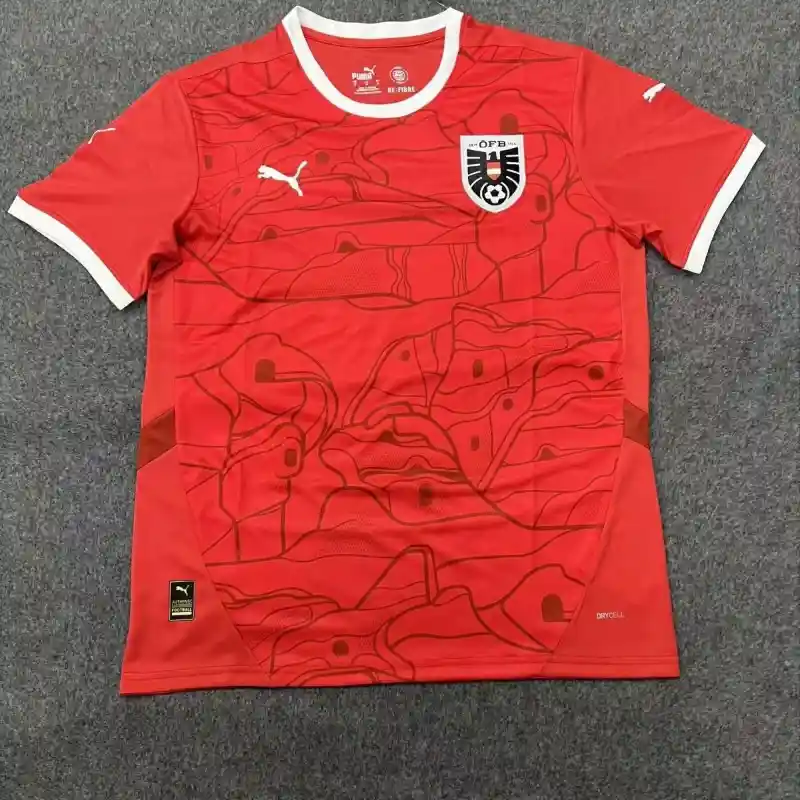YUPOO china B2B2C Wholesale Supplier Branded austria soccer jerseys, join us on whatsapp | Yupoo fashion national teams austria soccer jerseys players jerseys football retro jerseys reseller online store , Yupoo jerseys Replica top version for yupoo wholsale drop shipping jerseys to worldwide.


Austria's national soccer yupoo jerseys team, known as "Die Mannschaft," has a storied history in the world of soccer that spans over a century. The team's journey reflects the country's cultural and historical shifts, evolving from a dominant force in European football to a side focused on rebuilding and reclaiming its status in international competitions.
yupoo jerseys Soccer in Austria dates back to the late 19th century, with the first recorded match played in 1897. The formation of the Austrian Football Association (ÖFB) in 1904 played a crucial role in organizing soccer in the country. Austria became a founding member of FIFA in 1904 and began participating in international matches shortly thereafter.
The early 20th century saw Austria gaining recognition with a series of successful performances. The team first participated in the Olympic Games in 1908 and obtained a bronze medal in 1912, solidifying its position on the world stage.
The 1930s marked a golden era for Austrian soccer. The team, helmed by legendary players such as Matthias Sindelar, became known for its innovative and attacking style of play, often referred to as "Wunderteam." Austria's national team achieved remarkable successes, including reaching the semifinals of the 1934 FIFA World Cup in Italy, where they were narrowly defeated by Italy 1-0.
The team's fortunes continued to soar in the 1936 Summer Olympics in Berlin, where Austria claimed a silver medal after losing to Italy in the final. Drawing from their robust talent pool, Austria's national team was a force to be reckoned with, competing against the best teams in Europe and achieving iconic victories.
The onset of World War II brought significant disruption to Austrian soccer, as many players were drafted into military service. The war effectively suspended international competitions, and it wasn't until after the conflict ended that Austria began to rebuild its national team.
In the post-war period, Austria faced challenges in reestablishing its position in international soccer. The 1954 FIFA World Cup in Switzerland marked a turning point, as Austria advanced to the knockout stage but was defeated by Uruguay in the quarterfinals.
The 1970s saw Austria regain some of its footballing prowess. The national team qualified for the 1978 FIFA World Cup in Argentina, showcasing a talented squad led by players such as Hans Krankl and Walter Schachner. Austria surprised many by defeating West Germany 3-2 in a famous match during the group stage, ultimately finishing third in their group.
Austria continued to compete in international competitions, with a notable performance in the 1980 UEFA European Championship, where they reached the semifinals. However, the subsequent years presented challenges as the national team struggled to maintain consistent performances in international tournaments.
The new millennium brought about renewed hope for Austrian soccer. Austria co-hosted the UEFA Euro 2008 alongside Switzerland, an opportunity for the country to showcase its footballing talent on a grand stage. Although the national team did not progress beyond the group stage, the tournament helped raise the profile of soccer in Austria and provided valuable experience for young players.
The 2010s saw Austria field a generation of promising talent, including players like David Alaba and Marko Arnautović. The team secured qualification for the UEFA Euro 2016, marking their return to a major tournament after a long absence. Austria's performance in the tournament was underwhelming, but the exposure to high-level competition laid the groundwork for future success.
The Austrian national team demonstrated resilience and determination in the years leading up to the UEFA Euro 2020, which was postponed to 2021 due to the COVID-19 pandemic. Under the guidance of coach Franco Foda, Austria secured qualification for the tournament and aimed to make an impact.
Austria was drawn into a challenging group featuring the Netherlands, North Macedonia, and Ukraine. The team began the tournament with a victory over North Macedonia, followed by a narrow defeat to the Netherlands. However, they managed to advance to the knockout stage, showcasing their growth and adaptability. They faced Italy in the Round of 16, where they fought valiantly but were ultimately eliminated.
Austria's soccer history is filled with memorable matches that have defined the national team's identity. The rivalry with Germany is particularly significant, with matches between the two nations often charged with intensity and historic implications. The famous 3-2 victory over West Germany in the 1978 World Cup remains a defining moment in Austrian soccer folklore.
Another crucial rivalry exists with Hungary, known as the "Battle of the Danube." Matches between the two teams have historically drawn large crowds and showcased the rich soccer heritage of both nations.
with Austria's national soccer yupoo jerseys sale looks to the future, the focus remains on developing young talent and building a competitive team capable of challenging for honors on the international stage. The establishment of youth academies